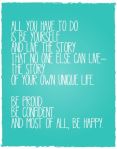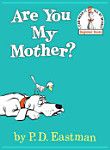 I receive a lot of nice mail. But, I can’t remember a more interesting or thought-provoking message in a long time.
I receive a lot of nice mail. But, I can’t remember a more interesting or thought-provoking message in a long time.
A Friend of Ours wrote:
Hi Rayne,
We spoke about 1.5 yrs. ago by telephone. I was a complete disaster on the phone so angered and teared up barely being able to focus whilst speaking with you. Since that time I had allowed the toxic and abusive relationship to continue until recently when my Mother created another ‘fairy-tale’ to which she fabricated stories to a family court that I absconded my child from her Father in Australia over five years ago.
Of course this story she told was simply nothing more than a story to which I, as with my ex-husband, was able to quickly clarify and provide evidence that no such thing had occurred. So without further ado my heart and mind quickly went into estrangement mode and stronger than ever before.
The only way I can describe to you in a metaphor about how this time it is for sure, is it is kind’a like getting really mad at yourself that you have made a huge mess in the kitchen and all of a sudden you start tearing through your kitchen doing what I call ‘Gorilla Cleaning’ to get through it all quickly and if anyone there is to witness this ‘Gorilla Cleaning’ they sure do know that you mean business and they wouldn’t dare stand in the way of your mission… of your Pinesol!
So now that you know I mean business I need your insight on how I might be able to structure a successful estrangement. Maybe it is my intense need to always have a plan or a map but I feel like I need a game plan of sorts. I can’t find a book or site on the web to help me and this is why I suggested that perhaps you could write a book on it?
For me, I simply cannot see myself sitting in a therapists office reciting my last 39 years of crap delivered by my Mother – I don’t want to talk about it anymore – I would like an actual Toolkit of Complete Estrangement.
I want to learn how to be REALLY happy and create more moments and loving opportunities with the abundance of friends I have because I know I don’t know how to do this all that great because I have never been taught. I do not have any other Family other than my Mother and a few distant cousins, aunts, and uncles so my estrangements make it pretty easy. I really need to find a supportive and humorous way to walk towards the future I see now that sadly I never saw before.
My only fear is that I will not know how to just be happy, Rayne, and that is such a crazy thought to get your head around unless you lived it yourself.
 Anyway, I have posted an ad on Kijiji today seeking a psychotherapist to assist me in creating a network of women that share in Mother estrangement; members will want to define their ‘happiness map’ after estrangement. I have a vision that the psychotherapist could guide and facilitate a positive approach for a group of women to create their own ‘Toxic Mom Toolkit’ so that each and every woman in the group can define boundaries, goals, and finally create what they deem to be their successful happiness destination. This is all I feel I can do until you’ve published your book Rayne 😉 lol Here is the ad link…. maybe you could share it on the FB page?
Anyway, I have posted an ad on Kijiji today seeking a psychotherapist to assist me in creating a network of women that share in Mother estrangement; members will want to define their ‘happiness map’ after estrangement. I have a vision that the psychotherapist could guide and facilitate a positive approach for a group of women to create their own ‘Toxic Mom Toolkit’ so that each and every woman in the group can define boundaries, goals, and finally create what they deem to be their successful happiness destination. This is all I feel I can do until you’ve published your book Rayne 😉 lol Here is the ad link…. maybe you could share it on the FB page?
http://london.kijiji.ca/c-community-activities-groups-Support-Group-for-Daughters-Estranged-willingly-from-Mothers-W0QQAdIdZ485398538
I love following your page but admittedly I have done so in privacy not wanting to broadcast it to my friends and associates… this has started change for me though 🙂
Thanks Rayne!
* * *
Wow! That’s quite a communication! My first reaction is that I’m flattered that Toxic Mom Toolkit has been a part of this person’s personal journey and that since cutting contact with her toxic mom she is glad of it and doing well.
My second reaction? WOW! Does she really need such an elaborate system and network to feel confident in that decision to cut off contact with a truly toxic mother? Well, apparently, Our Friend does, and so I support her 100% in seeking what she needs to stick to her plan. I also applaud her for putting herself out there and welcoming others to create a safe environment for mutual support.
I kind of chalk this up to how sometimes we need a lot of structure to follow our bliss and other times we just GO. It’s sort of like leaving home, embarking on your life journey. Sometimes, you are so done that you buy the ticket, call the taxi and get on the boat and you never look back. Other times, you have to take a bus ride around the block, but come back home. You might have to practice longer and longer trips until you get your emotional feet under you.
My goal in founding Toxic Mom Toolkit and writing my book was to tell my story and gather others and present them with an open heart and let readers sort out what they can use. I tend to be an either/or type of personality. I CAN walk out and never look back. But I understand that every person’s situation is unique and each person must navigate the waters only they truly know.
 Our Friend wonders if she can be happy and have friends and a normal life?
Our Friend wonders if she can be happy and have friends and a normal life?
My feeling is that you get out of life what you put into it. I also know the cringing self-defeating impulses that can limit adult children of toxic moms, who may have suffered abuse or neglect and have a hard time trusting others.
I love her idea of calling this journey a Happiness Map. All I can say is do what makes you happy and while you’re doing it, look up and see who else is happy doing what you like. Smile at them. Offer to help them or ask them for help. Suggest coffee or just a five-minute break and discuss your mutual passions. Friendships are built one smile, one conversation, at a time.
I was always taught by my father that love is reflected in love and took that to mean that kind relations will grow, but you have to be kind first. You have to get the ball rolling. Little by little, your social circle will expand and you will be leading a life that is lighter and happier. And for the people you know who are struggling with Toxic Mom issues, you will be a shining light.
While a group led by a therapist may be helpful I think that should only be a small part of your efforts to live life to the fullest.
 So, what do I think is the perfect formula for No Contact? I think the formula’s solution is simply personal peace and how you get there is your job to figure out.
So, what do I think is the perfect formula for No Contact? I think the formula’s solution is simply personal peace and how you get there is your job to figure out.
I hope that people find strength in knowing that they are not alone and that there is respect and mutual support available 24/7 at Toxic Mom Toolkit on Facebook and that our YouTube videos and the blog might also be helpful.
And always know – It’s not you. It’s her.
Tags: awful mothers, bad mothers, daughters of Toxic Moms, depression, facing family secrets, mean moms, Rayne Wolfe, Six Holiday Survival Tips for Daughters of Toxic Moms, The Happiness Plan, Toxic Mom Toolkit, Toxic Mom Toolkit on Facebook, Toxic Mom Toolkit on YouTube, Toxic Moms, toxic parenting, toxic siblings
















